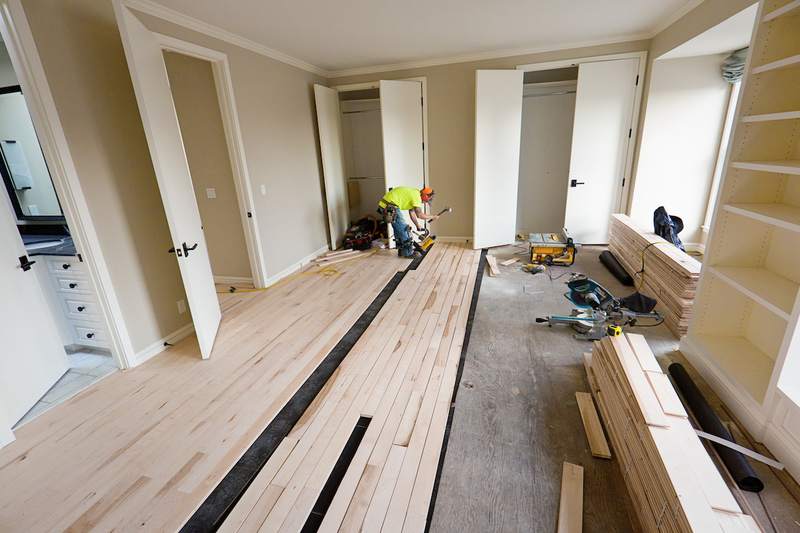
In an ideal world, every home purchase goes smoothly for both the buyer and the seller. Unfortunately, there can be reasons why a buyer may want to back out of the deal, even after they’re under contract with the seller.
Contingencies listed in the purchase agreement are one way a buyer can cancel the deal without penalty. Here’s a closer look at how contingencies work, as well as some examples of common real estate contingencies.
What Is a Contingency?
A contingency is a condition that must be met for a real estate transaction to be finalized. A buyer can choose which contingencies they wish to include in their offer and which to waive. That way, if they need to back out of the deal for any of the reasons listed as a contingency, they can do so without losing their earnest money deposit.
“There are several examples of contingencies that can be included in a home sale contract, such as a financing contingency, appraisal contingency, inspection contingency, and title contingency,” says Humberto Marquez, a real estate broker at Awning in Houston. “These contingencies are designed to protect the buyer’s interests and ensure that they are making an informed decision.”
How do contingencies work?
Contingencies protect the buyer from unforeseen problems that may arise between the time you sign the purchase agreement and closing day. If any of the contingencies aren’t met, you can renegotiate with the seller or back out of the deal without penalty or legal ramifications.
However, including too many contingencies can make your offer on a house less appealing — especially in a competitive seller’s market.
How can I keep my earnest money using contingencies?
Buyers typically put down an earnest money deposit upfront to show the seller that they’re serious about purchasing the home. If you back out of the deal without good cause, you’ll likely lose that deposit. However, you can keep your earnest money if you back out of buying a home for a reason listed as a contingency in the purchase agreement.
For example, if the home appraisal comes back lower than the purchase price and you have an appraisal contingency listed in your contact, then you can walk away without forfeiting your earnest money deposit.
Different Types of Contingencies
Knowing which contingencies are common in real estate can protect you from getting stuck buying a house with problems you didn’t foresee. Here’s a rundown of some common contingencies in real estate.
1. Appraisal contingency
Lenders will require an appraisal to approve your mortgage. Your lender likely won’t give you a mortgage that’s larger than the appraised value of the home, even if the appraisal comes in lower than the purchase price. This means that you would either have to cover the difference upfront, or dispute the appraisal. An appraisal contingency gives you the option to renegotiate the asking price, request compensation, or back out of the deal without penalty.
2. Home inspection contingency
The home inspection is a thorough examination of the current condition of the home. If the inspection reveals serious problems with the home that you weren’t aware of, you can ask the seller to complete the repairs or cover the cost. If you are unable to find a solution, the home inspection contingency lets you walk away without penalty.
3. Mortgage contingency
Chances are you’ll need to apply for a home loan to make this major purchase. But even if you have mortgage preapproval, there’s a chance you won’t get final approval — especially if your financial situation has recently changed. A mortgage contingency — also known as a financing contingency — lets you back out of a home purchase if you can’t get a home loan.
4. Title contingency
A title contingency covers you if there’s an issue with the title of the home or a past lien against the property. If the title search reveals that the home doesn’t have a clean title, the title contingency allows you to walk away or delay the sale until the issue is resolved.
5. Homeowners insurance contingency
This contingency requires the buyer to qualify for homeowners insurance prior to the closing date. Even if you can afford the policy, it’s possible that the property may not be eligible if it has been poorly maintained or is in a high-risk area.
6. Home sale contingency
Buyers may need to sell their current home to afford a new mortgage. A home sale contingency allows buyers to cancel the deal without penalty if they are unable to sell their home by a certain date. The home sale contingency does not apply to first-time homebuyers.
However, keep in mind that sellers may not want to wait for you to sell your home. As a result, you may have to waive this contingency — especially in a seller’s market where demand is high and supply is low. Another option is a bridge loan, which covers your new mortgage while you’re selling your previous home.
FAQ
Here are the answers to some frequently asked questions about contingencies.











